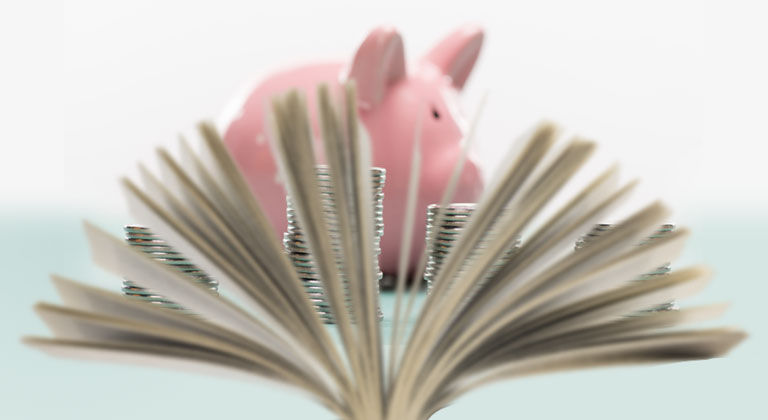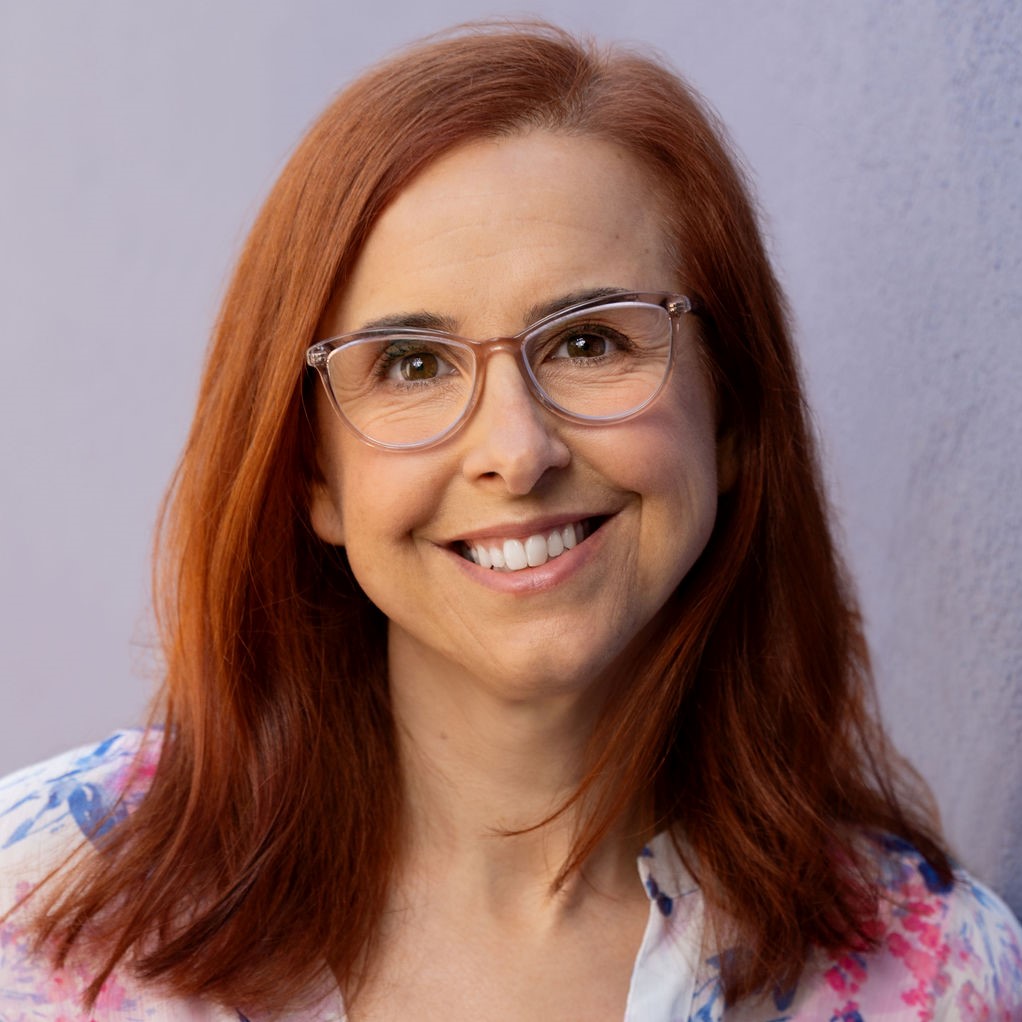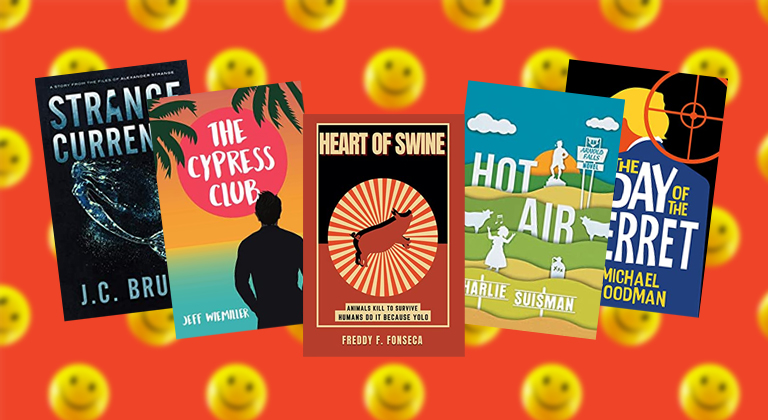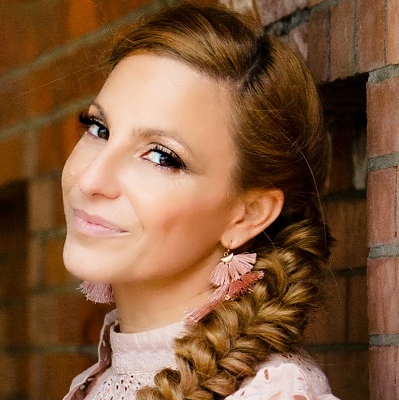Kindle Select – Are Page Reads Good or Bad for Authors?
Since the introduction of KU, authors have argued about whether it’s a good deal or not, given the ever fluctuating payouts and Amazon exclusivity they paid as a price for participation. On one hand, it does seem like more and more authors are going wide, but on the other hand, the KU program continues to grow and authors like Ginger have an overall positive experience with it. Here are some of the pros and cons about the program, as well as how Ginger has used it to enhance his own career as a writer.
Amazon pays self-published authors on it’s KDP Select program in two ways – royalties from book sales, and a share of ‘page reads’ from Kindle Unlimited subscribers. But is the fluid and unpredictable nature of the Page Read payout a good thing, or a bad thing for authors?
When I first moved to America, two things confused me. First, the tipping process – I just wanted a cheeseburger, guys. You didn’t tell me there’d be math homework. Secondly, the whole deal with medical insurance. I go to the doctor, I get my treatment – and I find out after the fact if it’s ‘covered’ or not.
The whole concept of not knowing how much something is going to cost until after you’ve agreed to buy it is really weird – and for self-published authors using Amazon’s Kindle Direct Publishing program, this conundrum exists in yet another form.
When you publish a book on Amazon, you have the option of making it part of the KDP Select program – in which you make your book exclusive to Amazon for 90 days in return for certain promotional opportunities, and the option of letting readers ‘borrow’ it as part of the Kindle Unlimited program (basically, Netflix for eBooks.) If you do that, you’ll receive a payout for every page they read; out of your share of the KDP Select Global Fund. This is the sum total of all Kindle Unlimited subscriptions for that month ($9.99 per subscriber) divided by the total number of pages read. In October 2018, for example, the total KDP Global Select Fund was $23.5 million – resulting in a per-page payout of $0.0048.
Yes, that’s right, a little less than half a cent a page.
If you had a 300-page book, and a Kindle Unlimited Subscriber read every page of it, that would mean you’d earn $1.44. While it’s less than the 70% royalty you’d receive on the price of a $2.99 book sale, it’s still more than you’d receive in royalties as a traditionally-published author. Of course, if you sell your book for higher than $2.99, your KU payout doesn’t change, which means your overall royalty percentage (against your list price) would be much lower.
Still, for many self-published authors, $2.99 is a fairly standard price and so the payout doesn’t seem that bad at first. However, it’s not quite that simple.
The first issue is that you only get that $1.44 if the reader read the book from cover to cover, which many readers do not do – for a variety of reasons. And while you may think, well… why should they pay for something they didn’t read then you’re forgetting two main points. 1. They didn’t pay any more for that book than any other, it was included in their monthly price and 2. When someone buys a book flat for that $2.99 (or whatever) list price, they pay that price regardless how many pages they read. So should KU be different?
But even if you believe it should be, the next issue is that the author doesn’t find out what the actual rate is until after the month has ended – on or around the 15th day of the following month. This means, while the author can track their page reads using tools like Book Report, they can never be sure how much that payout is actually going to be.
And while the number of subscribers to Kindle Unlimited seems to be continually going up (based on the overall KU money pool, which has risen from $2.5 million from the month the program was launched in July 2014, to the $23.5 million it was in October 2018) the number of pages read fluctuates wildly; especially when Amazon introduces new rules like banning most bonus material.
As an example of those fluctuations, the October 2018 payout per page was $0.0048 but the month before was $0.0042. While those raw numbers may seem small, that’s actually a fluctuation of 12.5%. And yes, the fluctuation may be a net positive one month, paying out more than the previous month, but it may also be a net negative, paying out less. When page read payouts started, the rate was actually closer to .006.
Imagine if you had a day job in which you’d never know how much money you’d receive for the work you did in the prior month until payday itself – and that amount could fluctuate by as much as 12% per payday!
For self-published authors, this can be a big concern – especially as a greater percentage of your sales start to come from the KDP Select Program. Speaking from personal experience, I receive five times the income from KDP Select page reads than I do from book sales alone – so that fluctuation is noticeable every time it’s announced. For authors who receive a million page reads a month, for example, that’s a $600 difference in your paycheck.
The problem is that it makes financial planning really difficult – since you genuinely can only guess at what final figure you’re going to end up with. For me, $600 could cover the cost of a powerful Facebook advertising campaign, or pay for the editing of one of my novels. It can give your self-publishing business a big hit, at least when the percentage falls down instead of rising up.
And in many ways, it doesn’t seem ‘fair’ not to know what you’re getting ahead of time. Like the example I gave above – of health insurance companies never being entirely clear what they cover and what they don’t – it’s never nice to commit to providing something and only find out later what the cost is going to be.
That being said, the benefit of Amazon’s 60-day payout standard – as in, you don’t receive payment on your book sales or page reads until 60 days after the end of the month – means you have a little big of wiggle room to plan your finances around the dip or peak in the page-read payouts.
Also, it’s difficult to really complain about the issue without coming up with a better solution – and at the moment, I’d rather take a 500% increase to my monthly payout from Amazon than know for certain how much that payout is going to be. The KDP Select program has helped many, many genre authors succeed wildly beyond their expectations – and I know I am incredibly happy to be part of the program. Yet it is hard to know how well I would be doing without the program at all. Raw sales on Amazon are necessarily supressed for books in KU because many readers have a membership so borrow the book instead – and since I can’t go wide to put my books on other retailers, I can’t tell for certain whether it would be more lucrative for me if there were no KU at all.
But in Amazon’s defense, they are constantly trying to improve the program and stabilize the payout. For the most part, they’ve consistently kept it at between $0.004 and $0.005 per page since the beginning of the program in 2014, and aside from the September 2018 slump, it’s remained within about a cent of $0.0046 every month this year.
The real issue with the program isn’t actually Amazon themselves – at least not if you just accept the program and it’s exclusivity for what it is as the status quo – but rather it’s the unscrupulous elements that a program of this type has attracted. Since its inception, the KDP Select program has been targeted specifically for abuse by people who want to make a quick buck with sketchy schemes.
This is why the KDP Select program has gone through a number of iterations over the years. Long-time authors will remember “KU 1.0” which was the first iteration of the program – in which authors got a flat-fee for every one of their books a Kindle Unlimited subscriber chose to download. That unfairly rewarded authors of shorts and micro-shorts, who’d receive the same payout for a 2,000 word short story as an author would for a 200,000 word novel. I myself remember switching my efforts from full-length novels to erotic shorts during that period and experiencing the best months of my career…
…until “KU 2.0” came along, in which authors received over $0.005 per page read at first – and unscrupulous authors would then include some some kind of scam to milk that iteration. Examples were a hotlink on the first page saying ‘click here to win an iPad’ or something – which would automatically take readers to the last page of the book. Amazon wouldn’t know that readers had been tricked into reading ahead, and paid the author as if every page of their book had been read, even though all but two had been skipped through.
Finally, we reached “KU 3.0” in which Amazon introduced Page Flip, to help readers navigate digital books more easily – and bypass erroneous page reads. This led to unscrupulous authors trying something called ‘book-stuffing.’ This is where you’d get authors who’d publish a new book – maybe a 20,000 word novella with a sexy cover and blurb – and then ‘stuff’ the remainder of their digital publication with previously-published stories, content and filler – padding out the pages to a ridiculous degree. And while there may be some legitimate cases for doing this – it does provide more value to the reader – the ones taking advantage of the system would often not even bother with providing meaningful content or bonus material, but would instead fill the remainder of the book with absolute nonsense.
These scammers would then use digital click farms to artificially ‘read’ the pages of their books; once again unfairly inflating the number of pages that appeared to have been read. For a book that’s stuffed with up to 3,000 pages of additional content (and yes, that’s what some were doing), every click bot that finally reaches the end of that ‘stuffed’ book would net the “author” about $15.
And remember, because of how page read payouts are done, that $15 doesn’t come from Amazon’s pocket at all – it comes from the pocket of fellow authors, real authors writing proper books and not scamming the system, by reducing the overall per page payout that is awarded to everyone from the fixed amount of money set aside in the KU payout pool.
Amazon finally responded to this latest scam with something I mentioned earlier – clarifying the rules of publishing and stating that a published eBook can have no more than 10% of its content be ‘bonus’ material. It’s not clear how they intend to enforce this rule – and sketchy authors are already trying to bypass it by adding the word ‘compilation’ to their stuffed books – but it’s yet another step towards ensuring that legitimate authors get paid a fair amount for legitimate page reads; and scammers get left out in the cold.
Yet with each new change to the system, it seems that someone always finds a way to game the system to benefit themselves at the expense of everyone else – it’s a never ending game of cat and mouse, with KU authors caught in the middle and suffering the consequences. Will Amazon eventually find a KU version that is impervious to these shenanigans?
It’s hard to say, but ultimately, for legitimate authors that choose to use the program, the best strategy for success seems to be to just write full length, quality books and get them in front of as many Kindle Unlimited subscribers as possible. Let Amazon worry about all the scammers and trust them to eventually work it out.
After all, Amazon’s focus has always been on providing the best customer experience possible – and, as an author, if you make that your focus too, you’ll always find yourself in alignment with whatever new system Amazon come up with to foil the scammers who are still trying to game the system. It’s definitely worked for me – I’m now writing full-length novels to the highest standard I can, and I’m consistently making more money than I ever have done before.
I’ve written before about how writing is a craft, not an art – and I think the KDP Select program rewards that mentality. Work on the fundamentals of a solid product and not only will you avoid being dinged by any new rules or standards Amazon introduces – you’ll also be the first to reap the benefits when Amazon successfully prevents fraudulent page reads and legitimate authors get a bigger share of the KDP Select Global Fund.
But that’s just my opinion – what do you think about page reads as a form of payout? And do you have any strategies to maximize the impact of them? Let us know in the comments section below!










